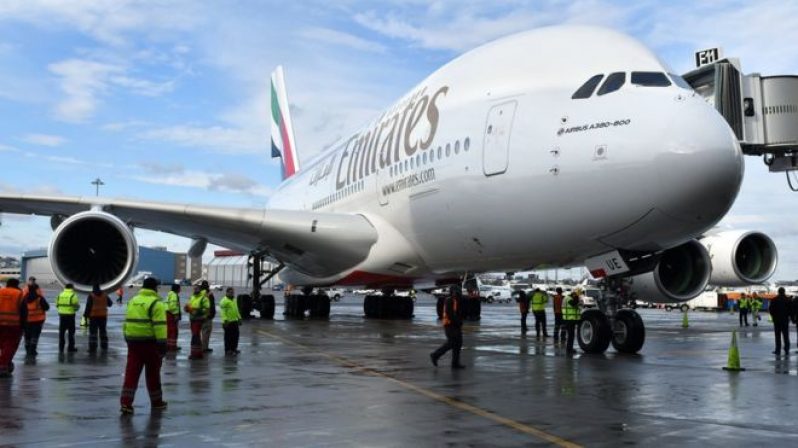[BBC] – The US has announced a ban on large electronic devices from cabin baggage on passenger flights from eight Muslim-majority countries.
Bombs could be hidden in laptops, tablets, cameras, DVD players and electronic games, the Department of Homeland Security (DHS) said. The measure will affect nine airlines operating out of 10 airports. Phones are exempt from the new rules.
The UK is to due to announce shortly a similar ban on certain flights. The Turkish government has said the US ban is wrong and should be reversed.
Large electronic devices will only be allowed on board in checked baggage. Passengers on some 50 flights a day from some of the busiest hubs in the Middle East, Turkey and North Africa will be required to follow the new rules.
The nine airlines affected are Royal Jordanian, Egypt Air, Turkish Airlines, Saudi Arabian Airlines, Kuwait Airways, Royal Air Maroc, Qatar Airways, Emirates and Etihad Airways.
They have been given 96 hours, beginning at 07:00 GMT on Tuesday, to ban devices bigger than a mobile phone or smartphone from cabins, US officials said, adding that the ban had no end date.
The airports affected are:
- Mohammed V International, Casablanca, Morocco
- Ataturk Airport, Istanbul, Turkey
- Cairo International Airport, Egypt
- Queen Alia International, Amman, Jordan
- King Abdulaziz International, Jeddah, Saudi Arabia
- King Khalid International, Riyadh, Saudi Arabia
- Kuwait International Airport
- Hamad International, Doha, Qatar
- Abu Dhabi International, United Arab Emirates
- Dubai International, United Arab Emirates
EgyptAir said it would start implementing the ban as of Friday.
The restriction is based, we are told, on “evaluated intelligence, BBC security correspondent Frank Gardner writes. That means that US intelligence has either intercepted discussion of a possible extremist plot or has been passed word of one by a human informant.
The Middle Eastern and North African airports affected are nearly all ones with close, friendly relations with Washington, so this will be seen by some as a drastic and unpopular measure. Wealthy Gulf Arab business leaders flying to the US, for example, will no longer be able to work on their laptops mid-flight.
But aviation security experts were alarmed by an incident in Somalia last year when the insurgent group al-Shabaab smuggled an explosive-filled laptop on a flight out of Mogadishu, blowing a hole in the side of the plane. The aircraft was still low enough that the pilot was able to land the plane safely.
In a statement, the DHS said: “The US government is concerned about terrorists’ ongoing interest in targeting commercial aviation, including transportation hubs over the past two years, as evidenced by the 2015 airliner downing in Egypt; the 2016 attempted airliner downing in Somalia; and the 2016 armed attacks against airports in Brussels and Istanbul.
“Evaluated intelligence indicates that terrorist groups continue to target commercial aviation, to include smuggling explosive devices in various consumer items.”
Homeland Security Secretary John Kelly called members of Congress over the weekend to explain the security issues behind the ban, congressional aides said. The restrictions are said to have been under consideration for several weeks.Turkish Transport Minister Ahmet Arslan told reporters the ban was “not a right move”.
“We particularly emphasise how this will not benefit the passenger and that reverse steps or a softening should be adopted,” he added.
Aviation security expert Jeffrey Price told the Associated Press news agency there could be downsides to the policy.
“There would be a huge disadvantage to having everyone put their electronics in checked baggage,” he said.
Thefts from baggage would skyrocket and it would be more difficult to detect battery fires in laptops in the hold than in the cabin, he argued. Officials quoted by Reuters news agency said the new measure was not connected to US President Donald Trump’s efforts to ban travellers from six Muslim-majority states.
On 6 March, the US leader signed a revised executive order barring citizens of Iran, Libya, Syria, Somalia, Sudan and Yemen from travelling to the US for 90 days. Federal judges in Hawaii and Maryland blocked the ban, which had been due to take effect last week.




.png)









